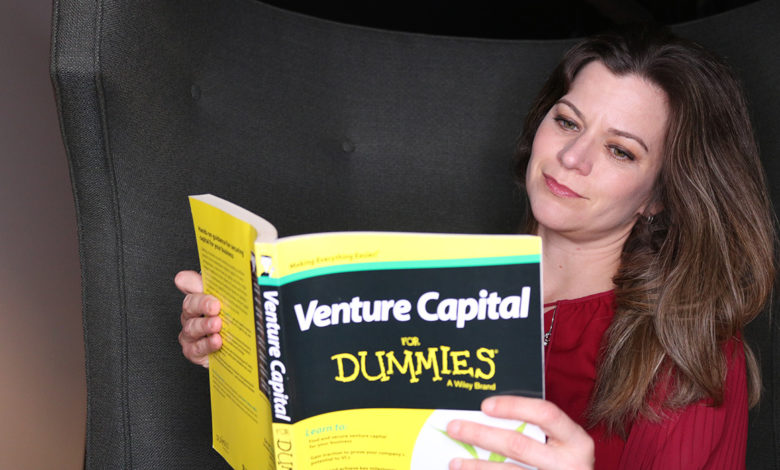
Recently, I had the opportunity to exchange emails with Joseph Wei, an IEEE Senior Member who is a speaker, startup mentor, and corporate advisor. Wei served as the Santa Clara Valley Section Chair in 2015, 2016, and 2018, and also is the founder/chair of an IEEE Startup Special Interest Group, which provides a focal point for IEEE members in Silicon Valley interested in learning, collaborating and networking with like-minded members in startup entrepreneurship. I asked Wei about startup investing, and about his experience being a partner at a venture capital firm.
JA: What is startup investing?
JW: Startup investment is a way to speed up new innovations. Startups are nimbler, which can make it easier to disrupt existing business; verses large, mature companies which can be slower to make changes. Investment in startups can range from early-stage (often referred to as a seed round), later-stage (Series-A, Series-B, etc.). Angel Investors (also referred to as just “Angels”), family, and friends often serve as early-stage investors. Venture Capitalists (VCs) and corporate ventures invest in later rounds.
JA: When you’re vetting potential startups, is the process similar to Shark Tank?
JW: Shark Tank is mostly a TV show for entertainment purposes. Shark Tank has a team that screens and prepares the startups before they appear on the show. In addition, they edit down the interviews between the startups and sharks (potential investors). The actual investment vetting process requires much more understanding of the founders’ background, company history, financials, products, and product-market fit then can be shown in such a concise period of time. That’s why most VCs prefer a “warm” introduction to a startup by someone whom they trust. VCs also have a defined focus; typically around a specific market and possibly for even a specific stage of the startup, depending on their funds’ structure.
JA: Why do people invest in startups? What is it about this style of investing that attracted you to it?
JW: VCs invest in startups because of the potential high financial return; unless it is a social impact fund. Corporations invest in startups to gain early access to their technologies. Individual investors, like angel investors, invest in startups because of a combination of personal interest and potential financial gain. For me, I am attracted to startups where I personally can add value to help them to succeed by leveraging my experience and my network, including my many IEEE colleagues.
JA: Are you a passive investor? If not, what is your relationship with the startups after you move forward?
JW: I prefer to be a semi-active investor/advisor to the startup to add value to the startup during its early growth. For example, the Harmonize Health founder invited me to join as his first advisor. I convinced a lawyer from Wilson Sonsini Goodrich & Rosati who specialized in healthcare to help with the company formation and also to make investor introductions. After spending many hours coaching the CEO on his pitch and making angel investor introductions, it eventually led to the startup closing a seed round investment with a VC.
JA: How many companies have you been involved with?
JW: I have been involved with thousands of companies in my career; however, many were not startups. I reviewed more than 1,500 startup pitch decks (a brief presentation startups send to potential investors) in the past few years. I estimated I have been involved with about 50 of them at different times.
JA: What should a startup look for in an investor?
JW: The single most important thing to look for is a trusting relationship. While many young entrepreneurs are eager to accept funds from investors, they often don’t realize that because an average startup exit might take six or more years this will be a long-term relationship. While a VC that invests in a startup wants to help it succeed, the VC’s key performance indicator (KPI) is maximizing its return on investment (ROI). Sometimes, this may result in conflicts with the entrepreneur’s vision and plans.
JA: What do you look for in an entrepreneur?
JW: I believe passion, integrity, and domain knowledge of the problem they are solving are the three key attributes. Many successful startup founders, who were inspired to found their businesses because of problems they faced in their own lives, have all three of these.
JA: What is your advice for engineers who want to become entrepreneurs?
JW: There are courses offered by various universities on entrepreneurship which you may take. However, nothing beats hands-on experience, which can come with the heavy price of leaving a comfortable corporate job. My advice is to plan for at least a year’s time in learning and networking with like-minded or experienced entrepreneurs and investors, and to focus on a real problem that you are passionate about solving before starting your entrepreneurial journey.
Jacquelyn Adams, an IEEE Senior member, is a nationally-recognized leader in employee learning and development. Jacquelyn is the CEO and Founder of Ristole, a consulting business that transforms corporations through engaging employee training. Find more of her Lessons on Leadership columns here.






